Monday, December 5, 2022 8:00 - 10:00 am
TUT1: Technoeconomic Analysis
Detailed AgendaThis tutorial will cover factors that impact successful commercialization of battery materials, technological feasibility vs. economic practicality, market need/company capability intersection. As well as technoeconomic analysis methodology, focusing on the critical early stages of a project where product design and process chemistry and development occur amid significant technical and economic uncertainty.
Thomas D. Gregory, Owner and Consultant, Borealis Technology Solutions LLC
8:00 am TUT1: Technoeconomic Analysis: A Powerful Tool for Guiding Battery Material R&D and Production
Thomas D. Gregory, Owner and Consultant, Borealis Technology Solutions LLC
Technoeconomic analysis is often thought to be synonymous with cost estimation, but it is also a powerful tool for guiding process and product R&D as well as assessing competing technology. This tutorial will illustrate the value of integrating technoeconomic analysis into new product and process development from laboratory to plant construction, focusing on the early stages of development when critical decisions such as process route selection must be made with limited data. Techniques for estimating capital and operating costs will be covered, ranging from simple analogies to more complex methodologies. Using the results to differentiate between process options and proceed from “What can we do?” to “What should we do?” will be highlighted. These concepts and methodologies will be illustrated with real-world examples based on the instructor’s 40+ years of industrial experience.
TOPICS TO BE COVERED: Factors that impact successful commercialization of battery materials. Technological feasibility versus economic practicality. Market need/company capability intersection. Technoeconomic analysis methodology, focusing on the critical early stages of a project where product design and process chemistry and development occur amid significant technical and economic uncertainty.
INSTRUCTOR BIOGRAPHIES:
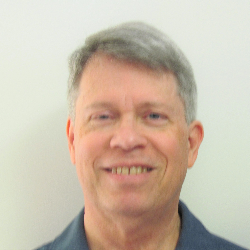 Thomas D. Gregory, Owner and Consultant, Borealis Technology Solutions LLC
Thomas D. Gregory, Owner and Consultant, Borealis Technology Solutions LLC
Tom Gregory received his BS in chemical engineering from Case Western Reserve University in 1978 and his MS in 1979, specializing in electrochemical engineering. His 34-year career at Dow Chemical encompassed a variety of R&D roles including development and scale-up of production technology for organic, inorganic, polymer, and ceramic materials. He led pioneering rechargeable magnesium battery R&D and engaged in development of novel lithium ion battery and fuel cell-related technologies. Tom is currently a consultant specializing in chemical process analysis, design, and scale-up and electrochemical energy generation and storage. He is active in both AIChE and The Electrochemical Society and frequently serves on proposal review panels for the National Science Foundation and Department of Energy. He is the inventor or co-inventor on 16 U.S. and 42 foreign patents and has published or presented 25 papers in scientific journals and conferences.
TUT2: Na-ion Batteries: Materials and State-of-Art (instructor will be presenting virtually)
Detailed AgendaNa-ion batteries (SIB) are rapidly developing as potential alternatives to complement Li-ion battery (LIB) technology. The energy densities of SIB are close to LIB but at the same time they avoid or reduce the amounts of many critical elements used for LIB. This tutorial gives an overview on Na-ion battery development with the focus on materials (anode, cathode) and electrolytes.
Philipp Adelhelm, PhD, Professor, Institute of Chemistry, Humboldt University, Berlin
8:00 am TUT2: Na-ion Batteries: Materials and State-of-Art
Philipp Adelhelm, PhD, Professor, Institute of Chemistry, Humboldt University, Berlin
Na-ion batteries (SIB) are rapidly developing as potential alternatives to complement Li-ion battery (LIB) technology. The energy densities of SIB are close to LIB but at the same time they avoid or reduce the amounts of many critical elements used for LIB. Due to their conceptual similarity, SIB can be produced on the same manufacturing lines like LIB, which is a great advantage for market implementation. This tutorial gives an overview on Na-ion battery development with the focus on materials (anode, cathode) and electrolytes.
Topics will include:
- Overview on anode and cathode materials for SIB
- Differences and similarities between LIB and SIB
- Why do some electrodes work for NIB and not for LIB (and vice versa)?
- Liquid electrolytes
- State-of-art. Overview on SIB companies and their suggested fields of application
- Thoughts on Na solid state, Na-sulfur and Na-air
- Potential bottlenecks
- Conclusions and outlook
INSTRUCTOR BIOGRAPHIES:
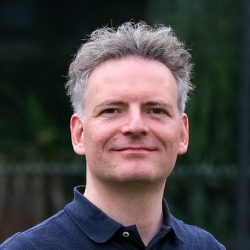 Philipp Adelhelm, PhD, Professor, Institute of Chemistry, Humboldt University, Berlin
Philipp Adelhelm, PhD, Professor, Institute of Chemistry, Humboldt University, Berlin
Philipp Adelhelm is a professor for physical chemistry at Humboldt-University Berlin. His current main interest is research on sustainable batteries. After studying materials science at the University of Stuttgart, he moved to the Max Planck Institute of Colloids and Interfaces in Potsdam (department of Professor Antionetti / Smarsly, 2005-2007) for his doctoral project. This was followed by a 2-year postdoctoral stay at the University of Utrecht (Professor de Jongh) and then a position as a junior research group leader at the Institute of Physical Chemistry of the Justus Liebig University in Giessen (Professor Janek, 2009-2015). From 2015-2019 he was a professor at the Institute for Technical Chemistry and Environmental Chemistry at the Friedrich Schiller University Jena. He has been a professor at the Institute for Chemistry at Humboldt-University since 2019, and heads a joint research group on operando battery analysis at the Helmholtz Zentrum Berlin (HZB).
TUT3: Design & Modeling (instructor will be presenting virtually)
Detailed AgendaThis seminar will provide of an overview of lithium-ion cell technology and an in-depth discussion of the principles guiding the design of both high-energy and high-power lithium-ion cells.
Robert Spotnitz, PhD, President, Battery Design LLC
8:00 am Cell Design & Modeling
Robert Spotnitz, PhD, President, Battery Design LLC
This seminar will provide an overview of lithium-ion cell technology and an in-depth discussion of the principles guiding the design of both high-energy and high-power lithium-ion cells.
INSTRUCTOR BIOGRAPHIES:
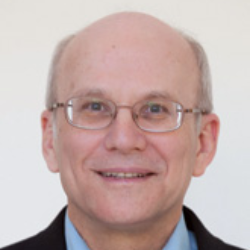 Robert Spotnitz, PhD, President, Battery Design LLC
Robert Spotnitz, PhD, President, Battery Design LLC
Dr. Spotnitz leads Battery Design LLC, a company that provides consulting and software for battery developers and users. He provides training in battery engineering for several organizations. He developed Battery Design Studio, a virtual environment for battery design and simulation which was sold to Siemens. He is a co-founder of American Lithium Energy Corp. and Enovix Corp. He is a co-inventor of the multi-layer battery separator introduced by Celgard. And a co-inventor of the mediated electrosynthesis process developed by W.R. Grace & Co. He is an inventor on 46 US Patents and author of 42 publications (including 4 book chapters).
TUT4: Lithium Metal Anodes: Benefits and Challenges to Batteries
Detailed AgendaThis tutorial will cover energy density improvements with lithium metal anodes as well as key challenges: Formation of dendrites and high surface area lithium and SEIVolume expansion during cycling and approaches to mitigate challenges in addition to solid vs liquid cells using lithium anodes and “Anode-free” approaches.
Dee Strand, PhD, CSO, R&D, Wildcat Discovery Technologies, Inc.
8:00 am TUT4: Lithium Metal Anodes: Benefits and Challenges to Batteries
Dee Strand, PhD, CSO, R&D, Wildcat Discovery Technologies, Inc.
TOPICS TO BE COVERED:
- Energy density improvements with lithium metal anodes
- Key challenges: Formation of dendrites and high surface area lithium
- SEIVolume expansion during cycling
- Approaches to mitigate challenges
- Solid vs liquid cells using lithium anodes
- “Anode-free” approaches
INSTRUCTOR BIOGRAPHIES:
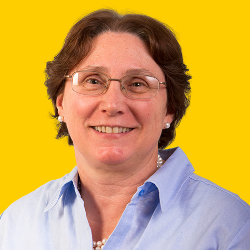 Dee Strand, PhD, CSO, R&D, Wildcat Discovery Technologies, Inc.
Dee Strand, PhD, CSO, R&D, Wildcat Discovery Technologies, Inc.
Dr. Dee Strand is a Senior Scientist at Wildcat Discovery Technologies. Dr. Strand has over twenty years of experience in materials research, development, and commercialization, primarily in the areas of energy storage and electronic applications. Prior to joining Wildcat in 2013, Dr. Strand served as a Research Fellow at Dow Chemical, where she was the technical lead in Dow Energy Materials, as well as the Principal Investigator on external research programs with universities and national labs on battery materials. Dr. Strand also has extensive experience in patent analysis and technical due diligence of new technologies. Dr. Strand completed her PhD in Analytical Chemistry at the University of Wisconsin-Madison, under the supervision of Professor John Schrag. Her PhD research focused on rheology and birefringence of polymeric solutions. Dr. Strand also holds a Master of Science degree in Chemistry from the California Institute of Technology and a Bachelor of Science degree in Chemistry from North Dakota State University.
TUT5: Materials For Next-Generation Batteries (instructor will be presenting virtually)
Detailed AgendaThis tutorial will cover the materials and performance challenges for next-generation batteries for electric vehicles and the electricity grid. The needs and use cases for storage in these two applications will be analyzed, and the possibilities of advanced lithium-ion, lithium-sulfur, and multivalent batteries for vehicles will be presented. Lithium and magnesium anodes, wide electrochemical window electrolytes, and high-voltage cathodes will receive special attention.
Instructor to Be Announced
8:00 am TUT5: Materials for Next-Generation Batteries
Instructor to Be Announced
This tutorial will cover the materials and performance challenges for next-generation batteries for electric vehicles and the electricity grid. The needs and use cases for storage in these two applications will be analyzed, and the possibilities of advanced lithium-ion, lithium-sulfur, and multivalent batteries for vehicles will be presented. Lithium and magnesium anodes, wide electrochemical window electrolytes, and high-voltage cathodes will receive special attention. New discovery approaches based on materials simulation and statistical learning will be discussed.
INSTRUCTOR BIOGRAPHIES:
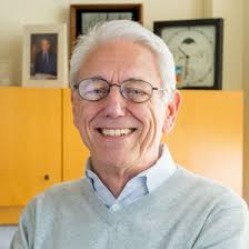 Instructor to Be Announced
Instructor to Be Announced
Monday, December 5, 2022 10:30 - 12:30 pm
TUT6: The Rechargeable Battery Market: Value Chain and Main Trends 2022-2032
Detailed AgendaThis tutorial will present the 10-year automotive market forecasts from Avicenne and other analysts (micro|Hybrid|P-HEV|EV). Other coverage will include car makers’ strategies and advanced energy storage (advanced lead acid|supercap|NiMH|LIB). Additionally, LIB design for P-HEV & EV markets (cylindrical, prismatic, pouch|wounded, stacked, Z fold cells) and LIB cell, module & pack cost structure will be discussed.
Olivier Noel, Senior Business Advisor, Avicenne Energy
Christophe Pillot, PhD, Director, Avicenne Energy
10:30 am TUT6: The Rechargeable Battery Market: Value Chain and Main Trends, 2022-2032
Olivier Noel, Senior Business Advisor, Avicenne Energy
Christophe Pillot, PhD, Director, Avicenne Energy
ABOUT THIS TUTORIAL:
This tutorial will present the 10-year automotive market forecasts from Avicenne and other analysts (micro|Hybrid|P-HEV|EV). Other coverage will include car makers’ strategies and advanced energy storage (advanced lead acid|supercap|NiMH|LIB). Additionally, LIB design for P-HEV & EV markets (cylindrical, prismatic, pouch|wounded, stacked, Z fold cells) and LIB cell, module & pack cost structure will be discussed.
TOPICS WILL INCLUDE:
- The rechargeable battery market in 2022
- Battery market by application
- Electronic devices
- EVE-bikes
- Power tools
- Stationary applications
- Raw material for lithium-ion battery supply chain
- Battery market forecasts, 2022-2032
- Focus on xEV market
- OEM supply chain
- xEV forecasts
- Impact of Li-ion batteries on lead acid battery market
- Conclusions
INSTRUCTOR BIOGRAPHIES:
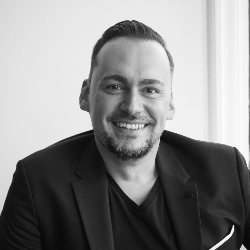 Olivier Noel, Senior Business Advisor, Avicenne Energy
Olivier Noel, Senior Business Advisor, Avicenne Energy
Olivier joined the Avicenne Energy US team in 2017 after a fifteen-year Marketing and Business Development career for a Fortune 100 chemical company focusing on energy storage and battery development projects. Avienne Energy is a team of advisors and consulting professionals providing market research aiming to clarify the market context and help companies to establish their growth and development plans in the battery value chain. Olivier has been part of many proprietary projects supporting the growth efforts of Avicenne Energy's clients and market research.
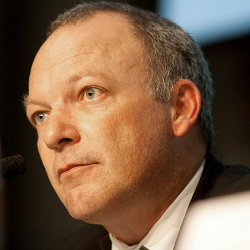 Christophe Pillot, PhD, Director, Avicenne Energy
Christophe Pillot, PhD, Director, Avicenne Energy
Christophe has built up considerable expertise in the area of batteries. He joined AVICENNE 26 years ago and spent 3 years in Japan analyzing the Japanese electronic, mobile & battery market. Christophe has acquired extensive experience in marketing, strategy analysis, technology and financial studies for the battery and power management fields. He developed the Battery market analysis for AVICENNE, which serves more than 220 customers worldwide. Christophe has published several annual surveys such as "The Rechargeable Battery Market". He is also the founder & chairman of Batteries - an international industry conference held in France since 1999. He is now Director at AVICENNE ENERGY. Globally, he has been involved in more than 300 projects for 200+ customers in the Battery value chain. Before joining AVICENNE, Christophe held a key position in FRANCE TELECOM's innovation division. He has a degree in Chemistry & an MBA in Innovation Management from Paris IX Dauphine. His mother tongue is French, and he speaks fluent English.
TUT7: Solid-State Batteries
Detailed AgendaIn this tutorial lecture, the development of state-of-the-art solid state Li ion and Na ion electrolytes for all-solid state batteries with emphasise on ionic conductivity and chemical and electrochemical stabilities will be discussed.
Venkataraman Thangadurai, PhD, Professor, Chemistry, University of Calgary
10:30 am Solid-State Batteries
Venkataraman Thangadurai, PhD, Professor, Chemistry, University of Calgary
This tutorial will cover the latest advances in solid-state batteries and their commercial applications.
INSTRUCTOR BIOGRAPHIES:
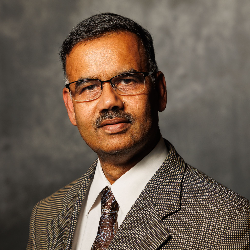 Venkataraman Thangadurai, PhD, Professor, Chemistry, University of Calgary
Venkataraman Thangadurai, PhD, Professor, Chemistry, University of Calgary
Dr. Venkataraman Thangadurai is full professor of chemistry at the University of Calgary, Canada. He is a Fellow of the Royal Society of Chemistry, United Kingdom. He received his BSc from Sacred Heart College in Tirupattur, India in 1989 and his MSc from Muthurangam Government Arts College in Vellore, India in 1991. He received his PhD from the Indian Institute of Science, Bangalore, India in 1999 and did his PDF at the University of Kiel, Germany. He received a prestigious PDF fellowship from the Alexander von Humboldt Foundation, Bonn, Germany. Dr. Thangadurai received his Habilitation degree from the University of Kiel in 2004 and started his independent career in Calgary in 2005. He received the prestigious Keith Laidler Award from the Canadian Society for Chemistry (CSC) in 2016 for his outstanding contributions to physical chemistry. His current research activities include discovery of novel ceramic membranes and mixed ion and electron conductors for all-solid-state batteries, solid oxide cells, and electrochemical gas sensors.
TUT8: Battery Safety & Abuse Tolerance Validation
Detailed AgendaThis training incorporates Shmuel De-Leon’s and other experiences on battery safety representing over 26 years of work in the field. The motivation behind the training is to provide attendees with the knowledge needed to safely handle the batteries in their organization and to support reduction in safety events.
Shmuel De-Leon, CEO, Shmuel De-Leon Energy Ltd.
10:30 am TUT8: Battery Safety and Abuse Tolerance Validation
Shmuel De-Leon, CEO, Shmuel De-Leon Energy Ltd.
Batteries have become daily use components for many applications. New growing segments like EV and grid storage batteries extend the traditional ordinary battery applications. In the race for energy density, we shouldn't forget safety. For example, the Samsung Galaxy Note 7 battery safety case. Unfortunately, we face daily safety events with injuries and severe damage. The workshop focuses on portable, stationary, and automotive battery safety along the battery cycle life (acceptance, testing, assembly, use, transportation, and disposal). This training incorporates Shmuel De-Leon’s and other experiences on battery safety representing over 26 years of work in the field. The motivation behind the training is to provide attendees with the knowledge needed to safely handle the batteries in their organization and to support reduction in safety events.
INSTRUCTOR BIOGRAPHIES:
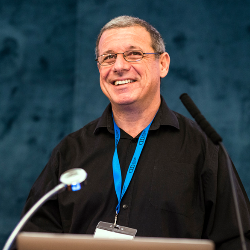 Shmuel De-Leon, CEO, Shmuel De-Leon Energy Ltd.
Shmuel De-Leon, CEO, Shmuel De-Leon Energy Ltd.
Shmuel De-Leon, Founder and CEO of Shmuel De-Leon Energy Ltd., is a leading international expert in the business of energy storage. Prior to founding the company, for over 21 years, Shmuel held various positions as an energy storage, electronic engineering, and quality control team manager. Shmuel holds a B.Sc. in Mechanical Engineering from Tel Aviv University, and an M.B.A. in Quality Control and Reliability Engineering from the Technion Institute in Haifa, as well as an Electronic Technician's diploma.
TUT9: Li-ion Cell Design And Manufacturing: Processes, Equipment, and Quality Control (instructor will be presenting virtually)
Detailed AgendaThis tutorial will begin with an overview of Li-ion cell design for performance and manufacturability, including contrasting the performance and characteristics of commonly used materials. The tutorial will then lead to a detailed review of Li-ion cell manufacturing from incoming raw materials through final cell formation, aging, and shipment.
James Kaschmitter, CEO, SpectraPower LLC
10:30 am TUT9: Li-ion Cell Design and Manufacturing: Processes, Equipment, and Quality Control
James Kaschmitter, CEO, SpectraPower LLC
This tutorial will begin with an overview of Li-ion cell design for performance and manufacturability, including contrasting the performance and characteristics of commonly used materials. The tutorial will then lead to a detailed review of Li-ion cell manufacturing from incoming raw materials through final cell formation, aging, and shipment. Manufacturing processes, equipment, and production line costs will be contrasted for cylindrical, prismatic, and pouch cells. Samples of commonly used cell components will be displayed. Quality control procedures will be described for each step of the cell manufacturing process, including a discussion on how to optimize cell performance, yields, and safety. Attendees can expect to leave this tutorial with an understanding of how commercial Li-ion cells are designed and produced.
INSTRUCTOR BIOGRAPHIES:
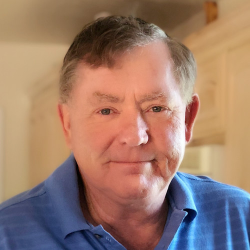 James Kaschmitter, CEO, SpectraPower LLC
James Kaschmitter, CEO, SpectraPower LLC
James Kaschmitter is the CEO of SpectraPower, which he founded in 2002. SpectraPower operates a battery research facility in Livermore, CA that performs contract energy storage research, consulting and expert witness services for government, private companies, law firms, startups and investors. Jim has founded, or co-founded, several companies in the energy storage field. He began research in Li-ion batteries in 1989 at Lawrence Livermore National Laboratory (LLNL). He was co-founder and CEO of PolyStor Corporation starting in 1993. PolyStor is the only U.S. company to have commercially manufactured in high volume in the U.S. all form factors of lithium-ion cells, including cylindrical, prismatic and polymer. In 1997 Jim founded PowerStor Corporation to commercialize the carbon aerogel supercapacitor that he co-invented at LLNL. PowerStor supercapacitors are now manufactured and sold in high volume by Eaton Bussman. He founded UltraCell in 2002, which successfully developed the world’s first reformed methanol micro fuel cell. UltraCell’s micro fuel cells are currently manufactured and sold by Brentronics and are deployed with U.S military and intelligence units, and are in use in combat in the Middle East. Jim holds a master’s degree in Electrical Engineering from Stanford University and has a bachelor’s degree in the Physics Honors Program from the University of Utah. He holds more than 20 patents in the alternative energy field. He owns, maintains and operates an experimental aircraft and holds instrument and multi-engine ratings.
TUT10: Science & Economics for Second-Life Batteries
Detailed AgendaThis interactive tutorial covers what’s next for the battery when an electric vehicle (EV) comes off the road? As electric vehicles production grows exponentially, the strategies for second-life EV batteries repurposing and reuse must also expand. To enable widespread reuse of EV batteries policy, economics, and science all play an important role.
Steven Chung, CoFounder CEO, ReJoule
Jessica Dunn, PhD, Senior Analyst, Union of Concerned Scientists
Antoni Tong, CEO, Smartville
Mary Ann Brown, Executive Director, Conferences, Cambridge Healthtech Institute
10:30 am Challenges with Sourcing, Grading, and Integration of Used EV Batteries
Steven Chung, CoFounder CEO, ReJoule
Repurposing EV batteries for secondary applications has many upsides, but the repurposing process must be profitable for all parties involved. EV battery collection, disassembly, testing, warehousing, and shipping add significant overhead to a project, and may outweigh the benefits of repurposing. Additionally, these challenges will evolve as the industry continues to develop and as EV battery technology advances. This tutorial will cover the challenges with sourcing and grading used EV batteries, and how ReJoule's technology can reduce the time to grade used EV batteries more than 10x, reduce logistical hurdles, and reduce the overall cost to repurpose EV batteries.
11:00 am Battery Recycling and Second-Life, Industry and Policy Development
Jessica Dunn, PhD, Senior Analyst, Union of Concerned Scientists
When lithium-ion batteries retire from their use in an electric vehicle, they can be used as a stationary storage system, also called second-life use. This extends their lifespan and provides storage for applications such as solar systems. After final retirement, the materials can then be recovered through recycling. These recovered materials are then available for the manufacturing of new batteries. This presentation will discuss recycling processes, second-life battery applications, and the current industry and policy development.
11:30 am Sustainable and Scalable Second-Life Battery Repurposing
Antoni Tong, CEO, Smartville
Repurposing and reusing EV batteries before they are recycled can significantly improve their value proposition. Smartville has developed MOAB, a universal and building-block-design energy storage system from repurposed EV batteries, with scalable hardware and data-driven qualifications. This tutorial will cover the challenges faced by system integrators trying to reuse EV batteries and will cover Smartville's solutions to some of those problems.
12:00 pm PANEL DISCUSSION:Q&A with the Instructors
Mary Ann Brown, Executive Director, Conferences, Cambridge Healthtech Institute
INSTRUCTOR BIOGRAPHIES:
 Steven Chung, CoFounder CEO, ReJoule
Steven Chung, CoFounder CEO, ReJoule
Steven is Co-Founder CEO of ReJoule, an advanced battery diagnostics startup in Southern California. ReJoule is commercializing its patent pending technology, which can grade a battery in minutes rather than hours. Steven was a Standards Technical Panel member on UL1974, the process certification standard for evaluating repurposed batteries. Steven has also been a Power Design Engineer at L-3 Communications, Power Paragon, where he designed and tested military-grade power systems for Navy surface ships and submarines. Steven received a Masters of Applied Science in Electrical Engineering from the University of Toronto with a specialization in power electronics for automotive battery systems.
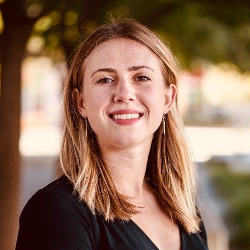 Jessica Dunn, PhD, Senior Analyst, Union of Concerned Scientists
Jessica Dunn, PhD, Senior Analyst, Union of Concerned Scientists
Jessica Dunn is a senior analyst in the Clean Transportation Program, specializing in lithium-ion battery sustainability. She conducts research on material circularity and reducing battery impacts through repurposing and recycling.
Jessica has a PhD in Energy Systems from the University of California, Davis. During her studies she was a co-facilitator for the California Lithium-ion Battery Recycling Advisory group and a private consultant for the International Energy Agency on topics related to energy technologies and battery systems. In addition, she published several academic journal articles which use industrial ecology methods to forecast and evaluate the impact of battery recycling.
Prior to pursuing her doctorate, she earned a master’s degree from University College London in Economics and Policy of the Environment and Energy and worked in the energy and environmental consulting industries.
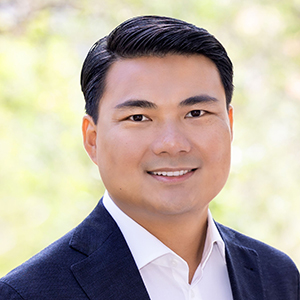 Antoni Tong, CEO, Smartville
Antoni Tong, CEO, Smartville
As CEO and co-founder of Smartville, Dr. Antoni Tong leads the technology development and commercialization of its low-cost and scalable second-life battery energy storage solution. He has extensive expertise in lithium battery management, control, and their integration with the utility grid, distributed renewable resources, and electrified transportation. Prior to Smartville, He worked as a research scientist at UC San Diego and served as principal investigator for the energy storage integration lab.
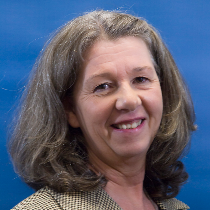 Mary Ann Brown, Executive Director, Conferences, Cambridge Healthtech Institute
Mary Ann Brown, Executive Director, Conferences, Cambridge Healthtech Institute
Mary Ann Brown joined Cambridge Healthtech Institute (CHI) in 1992 as a Data Entry Associate. At that time CHI was a start-up company with many roles to fill and explore. She quickly realized that conference production which combined creativity and love of learning was the path for her. Mary Ann’s conference portfolio is varied from biologics to batteries where she is organizes over 15 scientific meetings a year along with being a Team Lead for several Key Events. Mary Ann graduated from Doane College in 1978 with degrees in Biology, Environmental Studies, and Geology.
Monday, December 5, 2022 2:30 - 4:30 pm
TUT11: In-Depth Analysis of the Chinese xEV Battery Industry – From Applications to Upstream Materials (instructor will be presenting virtually)
Detailed AgendaAs the world’s biggest EDV market, Chinese xEV industry has become the most important pioneering target. However, specially planned economy, localized regulations, and multiple business models exist and make the international companies’ decision-making more difficult. Therefore, this tutorial will try to provide a whole picture of the Chinese EDV battery market including policies & regulation, future forecasts, competitive analysis, battery technology strategies, upstream supply chain, and positioning for foreign enterprises.
Mark H.L. Lu, PhD, Senior Industrial Analyst, Industrial Economics & Knowledge Center, Industrial Technology Research Institute
2:30 pm TUT11: In-Depth Analysis of the Chinese xEV Battery Industry – From Applications to Upstream Materials
Mark H.L. Lu, PhD, Senior Industrial Analyst, Industrial Economics & Knowledge Center, Industrial Technology Research Institute
ABOUT THIS TUTORIAL:
As the world’s biggest EDV market, Chinese xEV industry has become the most important pioneering target. However, specially planned economy, localized regulations, and multiple business models exist and make the international companies’ decision-making more difficult. Therefore, this tutorial will try to provide a whole picture of the Chinese EDV battery market including policies & regulation, future forecasts, competitive analysis, battery technology strategies, upstream supply chain, and positioning for foreign enterprises.
INSTRUCTOR BIOGRAPHIES:
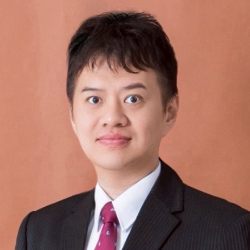 Mark H.L. Lu, PhD, Senior Industrial Analyst, Industrial Economics & Knowledge Center, Industrial Technology Research Institute
Mark H.L. Lu, PhD, Senior Industrial Analyst, Industrial Economics & Knowledge Center, Industrial Technology Research Institute
Mr. Lu graduated from Department of Business Administration in National Cheng-chi University, Taiwan, and continued to acquire an MBA degree from National Sun Yat-sen University. His first job concerned with the optical film in China for two years, then came back Taiwan to serve Industrial Technology Research Institute (ITRI) as an analyst in Industry, Science and Technology International Strategy Center (ISTI) until now. As a certified industrial analyst of the biggest think-tank in Taiwan, he is responsible for the research about Taiwan battery-related industry, including material, cell, pack and related applications. Not only handling the official government statistics about Taiwan battery industry, sometimes he also plays a role to provide consulting suggestions for Taiwan government and firms. From 2010 to June 2020, he served as the secretary-general of the Taiwan Battery Association.
TUT12: Improving the Energy Density of Batteries with Silicon-Based Anodes
Detailed AgendaThe key challenges in use of silicon-based anodes as well as progress in implementation of silicon and what can we expect in the future. The latest improvements in other battery components required to maximize the benefit of silicon-based anodes.
Dee Strand, PhD, CSO, R&D, Wildcat Discovery Technologies, Inc.
2:30 pm TUT12: Improving the Energy Density of Batteries with Silicon-Based Anodes
Dee Strand, PhD, CSO, R&D, Wildcat Discovery Technologies, Inc.
TOPICS TO BE COVERED:
The key challenges in use of silicon-based anodes as well as progress in implementation of silicon and what can we expect in the future.The latest improvements in other battery components required to maximize the benefit of silicon-based anodes.
INSTRUCTOR BIOGRAPHIES:
 Dee Strand, PhD, CSO, R&D, Wildcat Discovery Technologies, Inc.
Dee Strand, PhD, CSO, R&D, Wildcat Discovery Technologies, Inc.
Dr. Dee Strand is a Senior Scientist at Wildcat Discovery Technologies. Dr. Strand has over twenty years of experience in materials research, development, and commercialization, primarily in the areas of energy storage and electronic applications. Prior to joining Wildcat in 2013, Dr. Strand served as a Research Fellow at Dow Chemical, where she was the technical lead in Dow Energy Materials, as well as the Principal Investigator on external research programs with universities and national labs on battery materials. Dr. Strand also has extensive experience in patent analysis and technical due diligence of new technologies. Dr. Strand completed her PhD in Analytical Chemistry at the University of Wisconsin-Madison, under the supervision of Professor John Schrag. Her PhD research focused on rheology and birefringence of polymeric solutions. Dr. Strand also holds a Master of Science degree in Chemistry from the California Institute of Technology and a Bachelor of Science degree in Chemistry from North Dakota State University.
TUT13: Battery Management Systems
Detailed AgendaThis tutorial will cover machine learning and how it can be used in lifecycle prediction and anomaly detection. Also discussed is the critical need for battery data for intelligent machine learning algorithm development. In this vein, we present open-access battery data, and data science tools that will enable the battery community to develop innovative machine learning (ML) models to unlock the significant advances needed in battery yield, energy density, and lifetime that the industry is calling for.”
Christianna N. Lininger, PhD, Application Engineer, Voltaiq, Inc.
Nicole Schauser, Battery Data Scientist, Voltaiq
2:30 pm Machine Learning for Battery Intelligence
Christianna N. Lininger, PhD, Application Engineer, Voltaiq, Inc.
Nicole Schauser, Battery Data Scientist, Voltaiq
Data-driven methods are revolutionizing battery product development, from R&D to manufacturing to on-board vehicle diagnostics. This tutorial will present open-access battery data, and data science tools that will enable the battery community to develop innovative ML models that address some of the major challenges in the battery industry today. Themes covered include an overview of ML, ML’s benefits and limitations, data management principles, and the standard battery data ML pipeline. We will walk through two interactive case study examples - anomaly detection and cycle life prediction - on industry-relevant datasets, providing attendees with hands-on experience accessing data, and building and running ML models. We will conclude the tutorial with a training on how users can upload and run these tutorials on their own data to improve their development cycles and bolster their internal data analysis capabilities.
INSTRUCTOR BIOGRAPHIES:
 Christianna N. Lininger, PhD, Application Engineer, Voltaiq, Inc.
Christianna N. Lininger, PhD, Application Engineer, Voltaiq, Inc.
Dr. Christianna N. Lininger is the Director of Battery Science and Engineering at Voltaiq, the Battery Intelligence Software company that is accelerating commercial battery development in all commercial storage markets. She comes to Voltaiq after completing her Ph.D. and M.S at Columbia University and completing her postdoctoral studies at University of California, Berkeley. Her research was focused on theoretical computational chemistry and physics-based modeling for renewable energy technologies, focused primarily on the impact of mesoscale processes on the key performance metrics of Li-ion batteries. She studied the impacts of nano-sizing active material and the mesostructure of electrode composite on battery performance, phase-change materials, low cost cathode alternatives, solution responses at electrified interfaces, and machine learning algorithms to model building energy usage. Now at Voltaiq, she works closely with partners in industry developing commercial batteries as well as the Product and Analytics development efforts at Voltaiq.
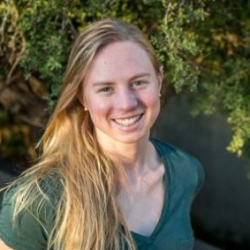 Nicole Schauser, Battery Data Scientist, Voltaiq
Nicole Schauser, Battery Data Scientist, Voltaiq
Dr. Nicole Schauser is a Battery Data Scientist at Voltaiq, the industry's first Enterprise Battery Intelligence software platform. She joined Voltaiq after completing her PhD in materials science at UC Santa Barbara, where she studied ion transport in solid polymer electrolytes for both lithium and multivalent batteries. Her experience includes research and development on lithium metal and silicon anodes, as well as solid-state electrolytes. Now at Voltaiq, she works closely with Voltaiq’s enterprise customers on their battery development programs, as well as contributing to the Product and Analytics development efforts at Voltaiq.
TUT14: Cell & Pack Design for xEVs
Detailed AgendaThis tutorial will give an overview of battery systems design. An overall product development process will be discussed for a typical system. Design aspects of each individual subsystem will be explored with cost impacts of different design choices. Testing, validation, and designing for safety will be other key areas of discussion.
Kevin Konecky, Battery and Energy Storage Systems Consultant, Total Battery Consulting
2:30 pm TUT14: Cell & Pack Design for xEVs
Kevin Konecky, Battery and Energy Storage Systems Consultant, Total Battery Consulting
ABOUT THIS TUTORIAL:
This tutorial will give an overview of battery systems design. An overall product development process will be discussed for a typical system. Design aspects of each individual subsystem will be explored with cost impacts of different design choices. Testing, validation, and designing for safety will be other key areas of discussion.
INSTRUCTOR BIOGRAPHIES:
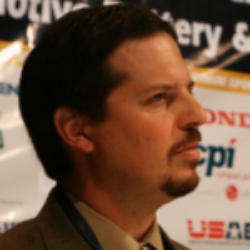 Kevin Konecky, Battery and Energy Storage Systems Consultant, Total Battery Consulting
Kevin Konecky, Battery and Energy Storage Systems Consultant, Total Battery Consulting
Mr. Konecky brings over 20 years of xEV experience to his work, having worked on multiple complex designs for battery system development, charging system integration, and high-voltage powertrain integration. He is skilled in new product design and development, product testing, product safety, integration of multiple sub-systems for vehicles, new product launches and has expanded his skillset beyond batteries into power electronics. His experience in batteries includes multiple technologies (Li-ion, NiMH, UltraCapacitors, Lead-Acid). Mr. Konecky has worked for multiple OEM and Tier 1 battery suppliers (GM, Fisker, Byton, Cobasys, EnerDel, Lockheed Martin) and has a BS in Electrical Engineering from Clarkson University (Potsdam, NY) and MS from Purdue (IUPUI - Indianapolis, IN).
TUT15: Li-ion Battery Safety & Thermal Runaway
Detailed AgendaThis tutorial/seminar is provided by Dr. Ahmad Pesaran with 25+ years’ experience in lithium-ion battery R&D&D including safety testing and modeling with perspectives of his participation at USABC Technical Advisory Committee. He will provide the audience with information and understanding needed to handle li-ion batteries safety in both their work at their companies and in products they deliver to the market.
Ahmad A. Pesaran, PhD, Chief Energy Storage Engineer, National Renewable Energy Laboratory
2:30 pm TUT15: Li-ion Battery Safety & Thermal Runaway
Ahmad A. Pesaran, PhD, Chief Energy Storage Engineer, National Renewable Energy Laboratory
Significant growth of lithium-ion batteries (LIB) for electrified transportation and renewable grid are expected in the next 10 years. Due to the characteristics of current LIB technologies, there is potential of for thermal runaway and fires as evidenced by recent fires in Tesla Model S, Chevy Bolt, and grid storage system in an Arizona Utility. Increase severity of fire incidents with more advanced energy dense LIBs, especially cathodes with higher Ni and anodes with silicon or lithium is expected. In this Tutorial/Seminar we will 1. discuss fundamental causes for safety issues leading to thermal runway and fire, 2. review abuse behavior of cells and packs through characterization, testing, and modeling/simulations, 3. provide overview of approaches that could reduce safety risks and detect impending failures, and 4. provide references as a resource for accessing more information. This tutorial/seminar is provided by Dr. Ahmad Pesaran with 25+ years’ experience in lithium-ion battery R&D&D including safety testing and modeling with perspectives of his participation at USABC Technical Advisory Committee. He will provide the audience with information and understanding needed to handle li-ion batteries safety in both their work at their companies and in products they deliver to the market.
TOPICS TO BE COVERED:
Li-ion Battery Introduction
a. Battery Fundamentals
b. Battery Chemistries
c. Cell Designs
LIB Safety and Abuse
a. LIB Fires
b. Instigators for Thermal Runaway
c. Battery Abuse Characterization and Testing Equipment
d. Battery Abuse Modeling/Simulation Tools
Approaches for Designing Safer Cells and Modules
EV Pack and System Safety
Remarks on Safe Handling of LIBs
INSTRUCTOR BIOGRAPHIES:
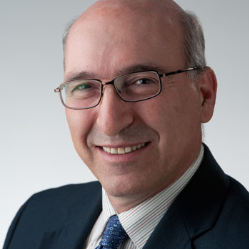 Ahmad A. Pesaran, PhD, Chief Energy Storage Engineer, National Renewable Energy Laboratory
Ahmad A. Pesaran, PhD, Chief Energy Storage Engineer, National Renewable Energy Laboratory
After receiving his Ph.D. from UCLA, Ahmad has been working at NREL on energy efficient technologies including electrified vehicles. Until 2017, Ahmad was the Manager of the Energy Storage Group researching science and engineering of high energy anodes and cathodes, battery thermal management, 3D electrochemical-thermal modeling, safety and thermal runaway modeling, battery second use, techno-economic analysis of batteries for EVs; he led the Computer-Aided Engineering for Electric Drive Vehicle Batteries for Department of Energy (DOE).Between 2016 and 2018 he was detailed at the DOE's Vehicle Technologies Office (VTO) as technical advisor to the Battery program supporting battery processing, extreme fast charging and recycling. He was the Administrator for the first Phase of the DOE Battery Recycling Prize.Currently, Ahmad is pursuing energy storage business development activities for NREL and supports VTO with battery processing, manufacturing, solid electrolyte, and low-cobalt cathode projects.